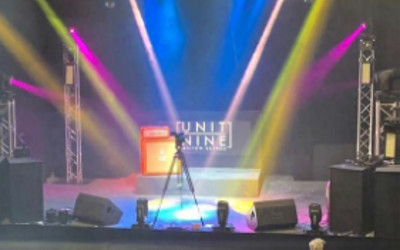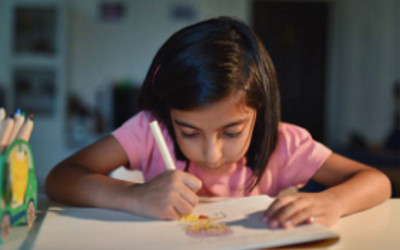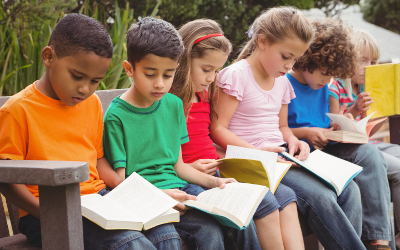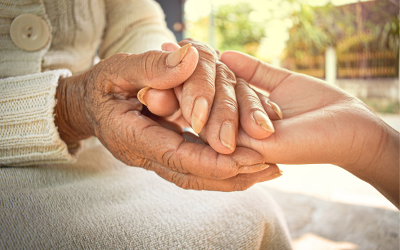Knowledge Transfer Vouchers

The Knowledge Transfer Voucher (KTV) scheme aims to kick-start new relationships and collaborative projects between Open University academics and SMEs, public and third sector organisations across all nations in the UK and overseas.
KTVs provide a small amount of funding for OU academics to engage with organisations to solve challenges they are facing, identify opportunities for further collaboration and develop new partnerships. Projects should tackle a challenge which requires our academics’ specialist knowledge, expertise, or facilities to resolve (or a combination of these). Projects may provide expert insight, develop new processes, or provide proof-of-concept to help the organisation solve a pressing problem, innovate, and grow.
The Open University’s Higher Education Innovation Fund (HEIF) has been funding KTVs for over four years to enable organisations which have not engaged with the University before to partner with us to solve these challenges. Over two thirds now have lasting partnerships.
On 1 August 2024, HEIF funding was granted to fifteen new projects for the 2024-2025 academic year. These projects have generated new publications, journal articles, company reports and presentations, new products, services and further funding for other projects such as Open Societal Challenges, or Knowledge Transfer Partnerships.

RGS Music Ltd
This Faculty of Wellbeing, Education and Language Studies led project explored music workers’ learning journey, trialling digital remote vulnerable group provision to allow Unit Nine to operate during the pandemic and helped RGS Music consider ways to future-proof its business, gain a better understanding of the local stakeholder landscape, and open up new sources of finance.

Education Otherwise
This Faculty of Wellbeing, Education and Language Stuides led KTV explored the design, use and purpose of a potential CPD ‘primer’ course for Elective Home Educator stakeholders (Local Authorities, EHE charities and community groups). It reviewed evidence and identified models of good practice; partnerships between local authorities and elective home education communities in the UK and consulted with families through Education Otherwise, to generate new case studies of good practice and/or ‘family stories’ and/or reflections.

The National Literacy Trust
The National Literacy Trust identified that new non-EU child migrants (11-13 years) often need additional literacy support. Skills Academy, a school-based reading intervention, was repurposed to support students with English as an additional language. The project was piloted, for the first time, in a community setting, supporting students in an out-of-school football-themed literacy club which benefited 30 students. This Faculty of Wellbeing, Education and Language Studies led KTV evaluated improvement of the students’ literacy skills and confidence and explored the potential secondary impacts of students’ enhanced skills in supporting community cohesion at an individual level, focusing on participatory approaches and participants’ reflections.

The Froglife Trust
Froglife is a national nature conservation organisation with a specific focus on the UK’s native reptile and amphibian species and their habitats. Staff used a variety of evaluation tools to gather feedback from a wide range of individuals, including participants, referral agencies and carers/support workers and data collected from this feedback quantified the work the Trust delivered and demonstrated the positive impact it has on wildlife conservation. This Faculty of Wellbeing, Education and Language Studies led KTV project gave Froglife the in-house tools and capacity to evaluate the data to provide evidence of the social impact of their work. This project set up an evaluation protocol and provided Froglife’s staff members with guidance on how to implement the protocol, as well as suggesting possible ways of jointly publicising and disseminating outputs.

The Scotch Whisky Research Institute
This Faculty of Science, Technology, Engineering and Mathematics led KTV with the Scotch Whisky Research Institute designed and built a prototype portable biosensor microchamber to tests the phenols in whisky, to better control the fermentation process and aid overall product quality control. In-situ monitoring is an innovation, enabling distillers to test the samples locally and be able to take immediate decisions for the next stage of the process.

Carers in Bedfordshire
This Facutly of Wellbeing, Education and Language Studies led KTV project provided a framework for evaluation and training for Carers in Bedfordshire (CiB) to implement the recent NICE guideline on Supporting Adult Carers locally, facilitate the exchange of expertise and insights between CiB staff and OU academics around researching care and caring, policy implementation, research knowledge and practitioners’ knowledge.

Atlas Technologies Ltd
High intensity X-ray devices are used to sterilise vaccines, medicines, and blood products. These high intensity X-ray devices became vital pieces of equipment when the Covid pandemic struck in 2020. This Faculty of Welllbeing, Education and Language Studies led KTV used Open University know-how, dedicated staff and lab facilities to develop a new technology to fabricate life-saving adapters for X-ray tubes in record time! The key and challenging part of the X-ray sterilisers is a bi-metal flange made of high- strength aluminium alloys and stainless steels. These flanges should remain hermetically sealed at ultra-high vacuum when exposed to cryogenic and up to 300°C environments. Since aluminium cannot be welded to steel using conventional methods, the aluminium-steel flanges could only be joined by “Explosive Welding”. There are only a few suppliers in the world with the know-how to produce explosive welded bi-metal products but they have a lead time of six to 12 months. With the huge demand created by the Covid pandemic, clearly, such a long delay would slow down the production of life-saving vaccines. We designed eight, did it in five months, contributing to saving countless lives.

Deaf Action Scotland
This Faculity of Wellbeing, Education and Lanaguge Studies led KTV drew on the needs of deaf people and their communities to inform the production and delivery of a new OU British Sign Language (BSL) curriculum and set up long-term collaboration with Deaf Action Scotland. The project mapped and identified gaps in provision of BSL for deaf people and the wider community. It ensured the OU BSL curriculum is community-grounded and resulted in a course that is produced by and for the deaf community. This project led to the creation of a level 4 BSL course.

Learning Disability England
This Faculty of Wellbeing, Education and Language Studies led KTV helped Learning Disability England (LDE) commission self-advocacy for people with learning disabilities by sharing good practice and identifying a road map for action. It investigated how self-advocacy groups for people with learning disabilities are funded, and the impact this funding has. LDE and its members worked with Open University (OU) specialists in learning disability, with expertise in self-advocacy, to identify the factors that led some groups to securing stable and sustained funding, while others faced funding arrangements that are much more precarious.

Welsh Rugby Union
Since 2014, the Welsh Rugby Union has been running a national programme to widen participation in rugby amongst young people and, through such participation, to enhance skills and learning. This Faculty of Wellbeing, Education and Language Studies led KTV funded an evaluation of the latest phase of this programme, (Hub 2, 2017-2020). The results informed the ongoing development and roll-out of the programme.